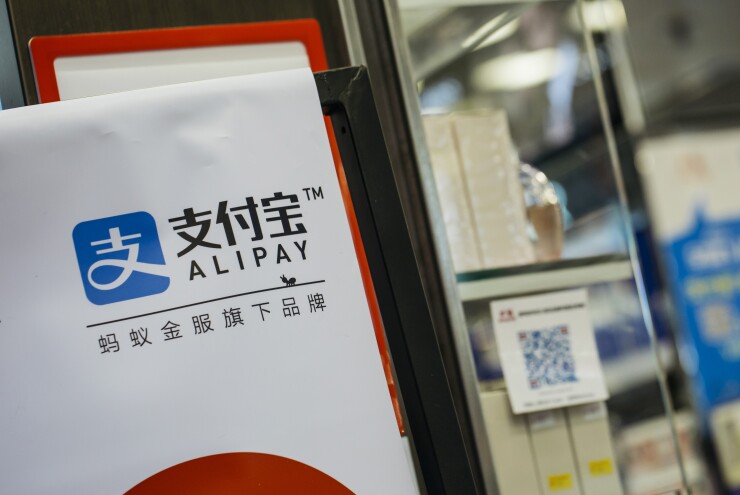Since e-commerce merchants often operate without walls, it makes little sense to operate with borders.
But international borders exist, and so do regulations, customs and preferences that vary dramatically from region to region. The biggest prize in the race is
Stripe recently made a huge score by partnering with

"The key to selling for U.S. merchants is all about the logistics, the regulatory issues, the marketing," said Raymond Pucci, an associate director at Mercator Advisory Group.
The challenge is managing it all. It's possible for companies to do it on their own, but partnering with an intermediary in the target country is more straightforward for all involved, according to Alipay.
"Can a [North American] merchant come directly to us? The answer is yes," said Souheil Badran, president of Alipay in North America. "But the beauty of the relationship with Stripe is the focus on the back end. The settlement, the processing, is all one one file. For a small to mid-sized business, they're simply offering their products to an extended audience."
Stripe and Tencent (which operates WeChat) would not provide executives for an interview. Stripe has built a large business—it's valued at more than
"Since Stripe is the merchant of record for their merchants, it should be pretty easy for a merchant to accept these new payment alternatives," said Thad Peterson, a senior analyst at Aite Group.
The collaboration is reliant on the actual goods being salable in China, though there are signs U.S. brands are popular with
"It's a pretty big deal to enable non-card payments out of China for U.S. goods and services," Peterson said. "And by allowing Chinese consumers to pay using the most popular payment vehicles in the country it literally opens up a new market for U.S. online merchants."
Alipay envisions the most common payments will be subscription payments and recurring payments for cosmetics, nutritional supplements and baby care products.
"The middle class in China is more than 300 million, that's more than the entire population of the U.S.," Badran said, adding merchants in Stripe's network of nearly two dozen countries will have access to that market. "It's just a click and the service is available immediately."





